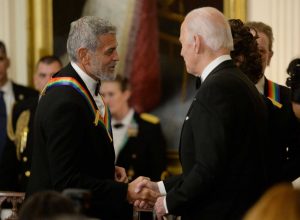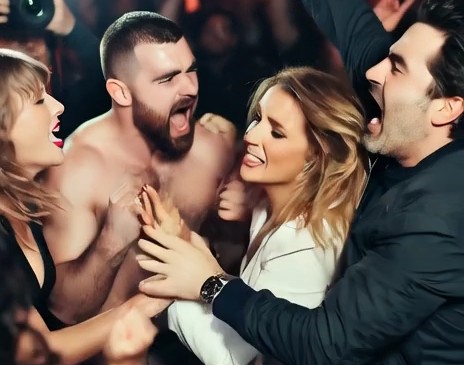George Clooney’s recent stance urging President Biden to reconsider his candidacy has ignited tension within Hollywood, a space notorious for enforcing conformity. This political maneuver has unearthed the hidden mechanisms of control wielded by the industry’s elites, who are known not to tolerate dissent. Insiders fear that Clooney has unwittingly aligned himself with a disturbing narrative of intimidation used to silence critics. Hollywood’s “fixers,” such as Anthony Pellicano and Tom Girardi, have a troubling history of utilizing California’s 5150 psychiatric hold provision to discredit voices that disrupt the status quo.
The 5150 hold, originally intended as a protective measure for individuals deemed a danger to themselves or others, has reportedly been weaponized by some of Hollywood’s top players to suppress critics. Well-known figures such as Pellicano and Girardi have employed these controversial tactics against whistleblowers who dare speak out against the abusive practices prevalent in the industry. Beyond the surface charm of glitz and glamour lies a harsh reality where exploitation, intimidation, and coercion keep the darker aspects of Hollywood under wraps.
Clooney, who might perceive himself as immune due to his stature, could find himself facing a similar fate as countless whistleblowers like Kanye West, Rose McGowan, and Corey Feldman. These figures have bravely voiced their experiences of Hollywood’s exploitative practices, including the troubling trafficking of vulnerable talent, especially minors. Clooney’s attempts to reshape political narratives have made him susceptible to the backlash traditionally reserved for those who threaten to expose the hidden machinations of Hollywood’s elite.
For years, the silence surrounding the inner workings of Hollywood has been maintained through fear and intimidation. Allegations of using the 5150 holds for nefarious purposes have emerged, with figures like Dr. Carole Lieberman playing a role in orchestrating psychiatric evaluations to undermine critics while promoting a narrative of mental instability. This systematic silencing allows the industry to protect its secrets and maintain its grip on power.
Clooney’s provocative stance may have inadvertently challenged this tightly controlled environment, putting him at risk of retaliation from an industry that won’t hesitate to employ its well-honed tactics of reputational warfare. Accusations, media feeding frenzies, and relentless pressure have shattered the careers and reputations of many before him. The voices of those like Kanye West and Rose McGowan highlight a culture steeped in fear, where outspoken individuals must tread carefully or face relentless personal and public attacks.
Should Clooney continue down this precarious path, the repercussions could be dire. History shows that Hollywood does not forgive dissent—individuals who challenge established power structures are often systematically dismantled to preserve the narrative and maintain the status quo. Whistleblowers continually expose the depth of Hollywood’s ethical failings, revealing a complex apparatus built on coercion that seeks to silence any threats.
As Clooney’s star shines bright on this political stage, the warnings from the shadows grow stronger. His high-profile maneuver could stir the industry’s repressive powers into action, risking not just his career but his legacy. The message is clear: the consequences of defiance in Hollywood are severe, and those who dare to disrupt are often met with a regime willing to go to extraordinary lengths to protect its secrets.




















